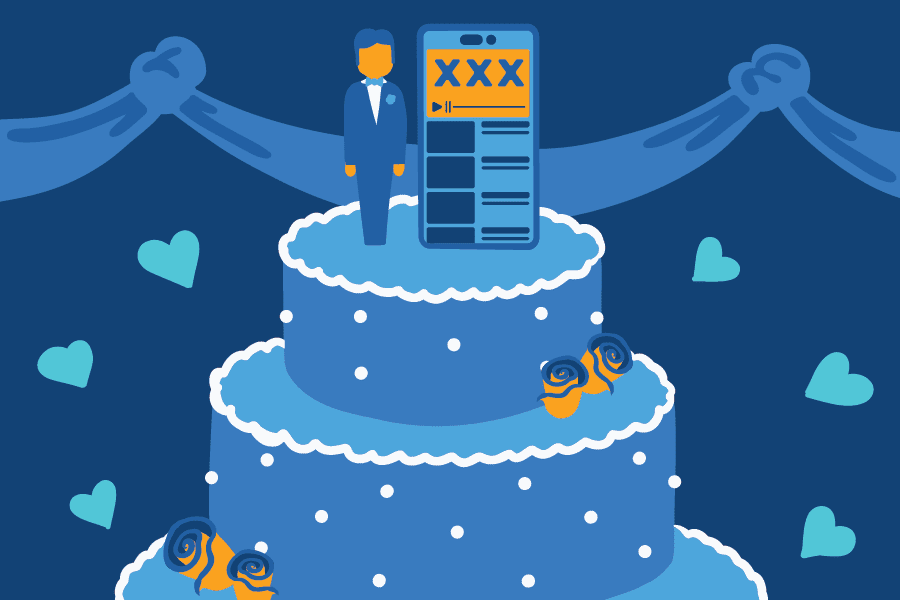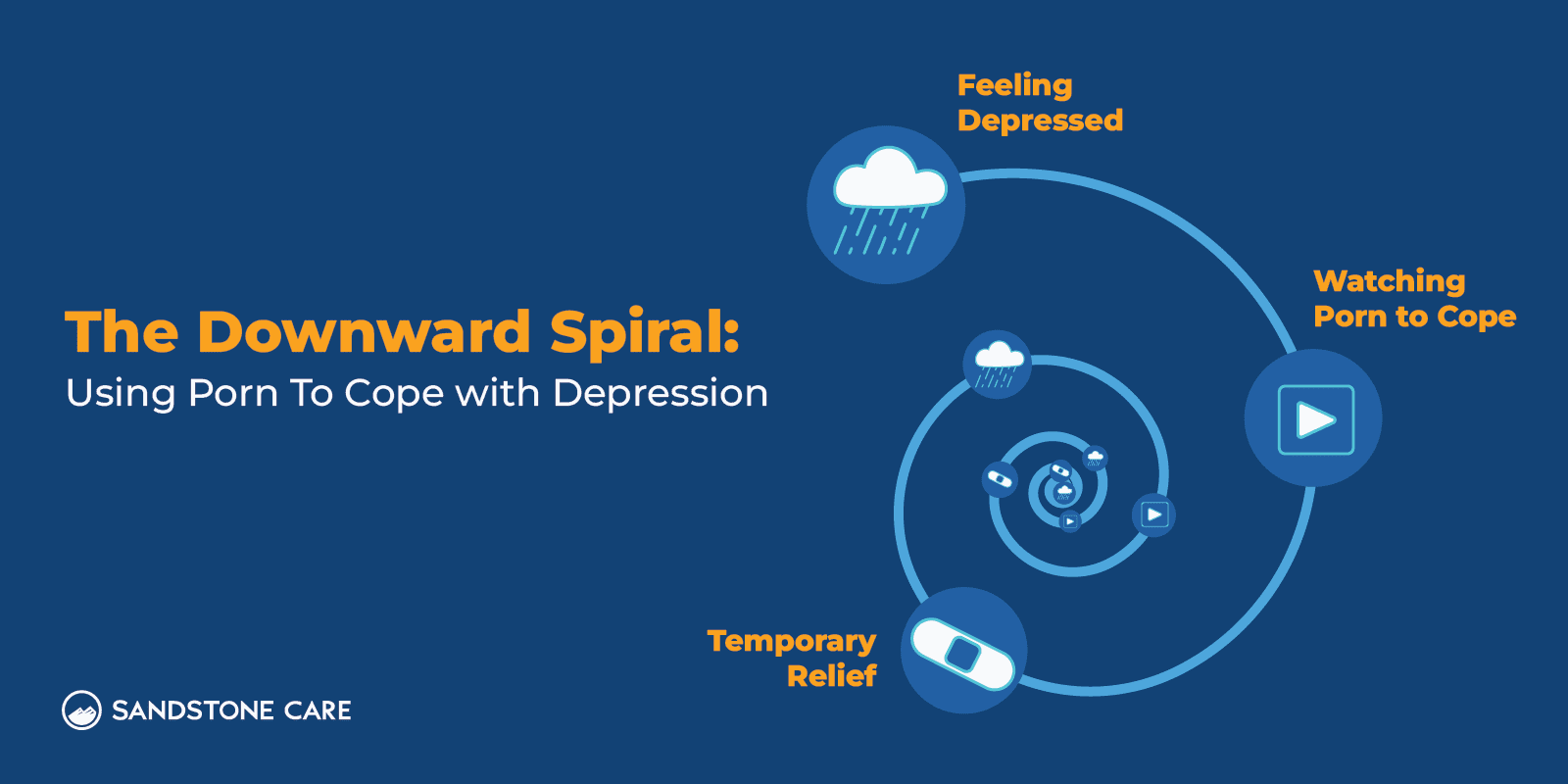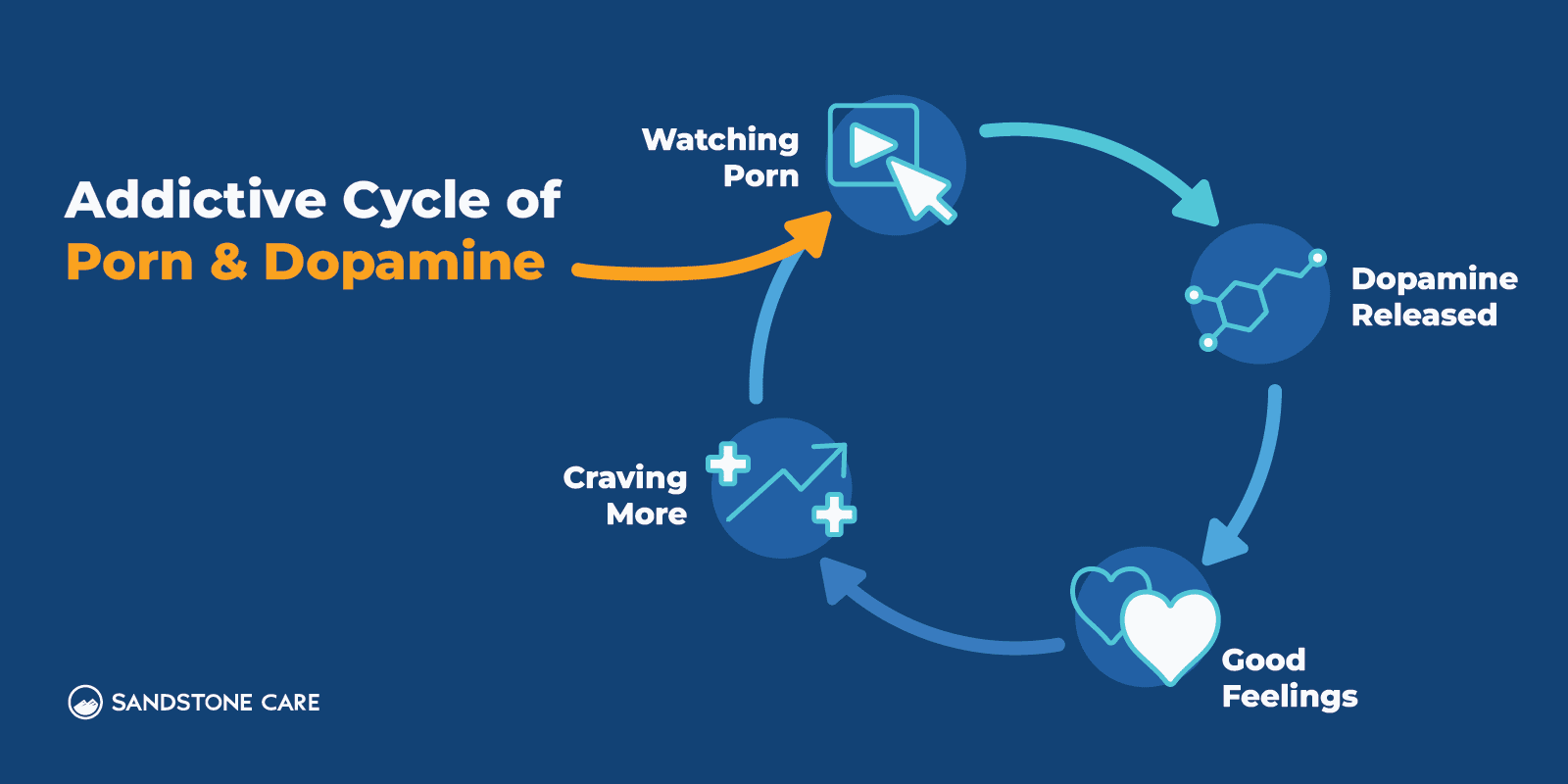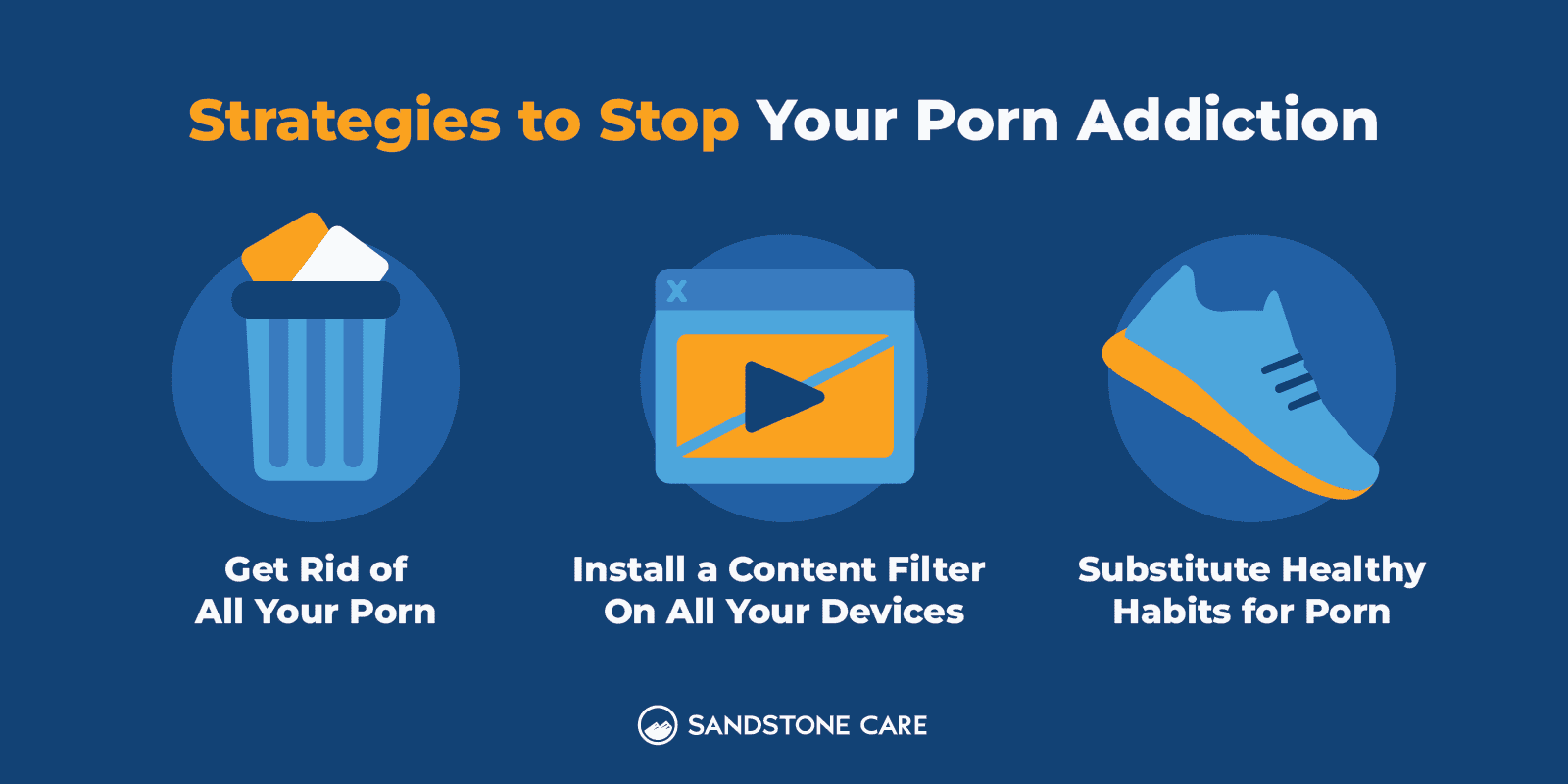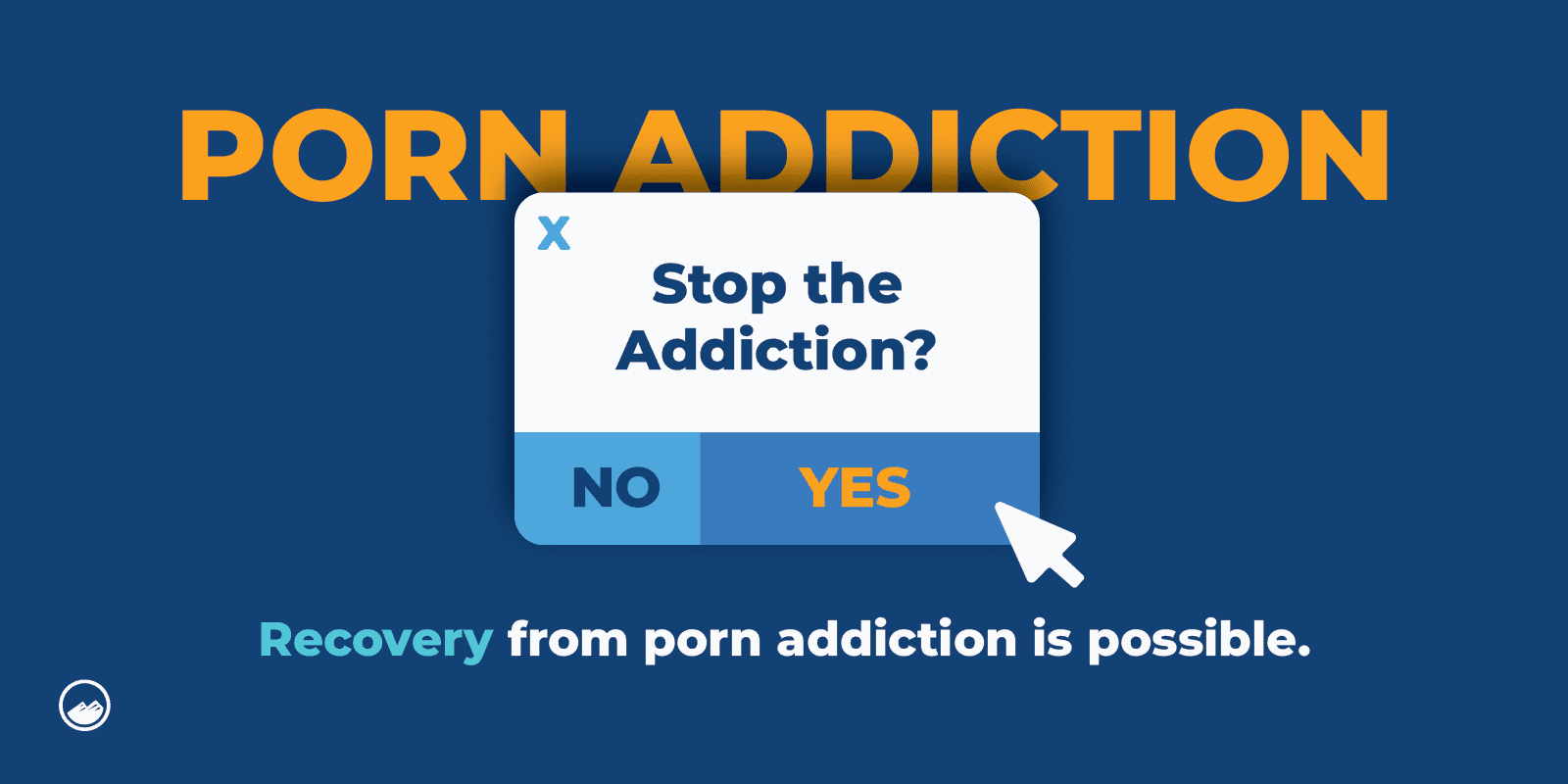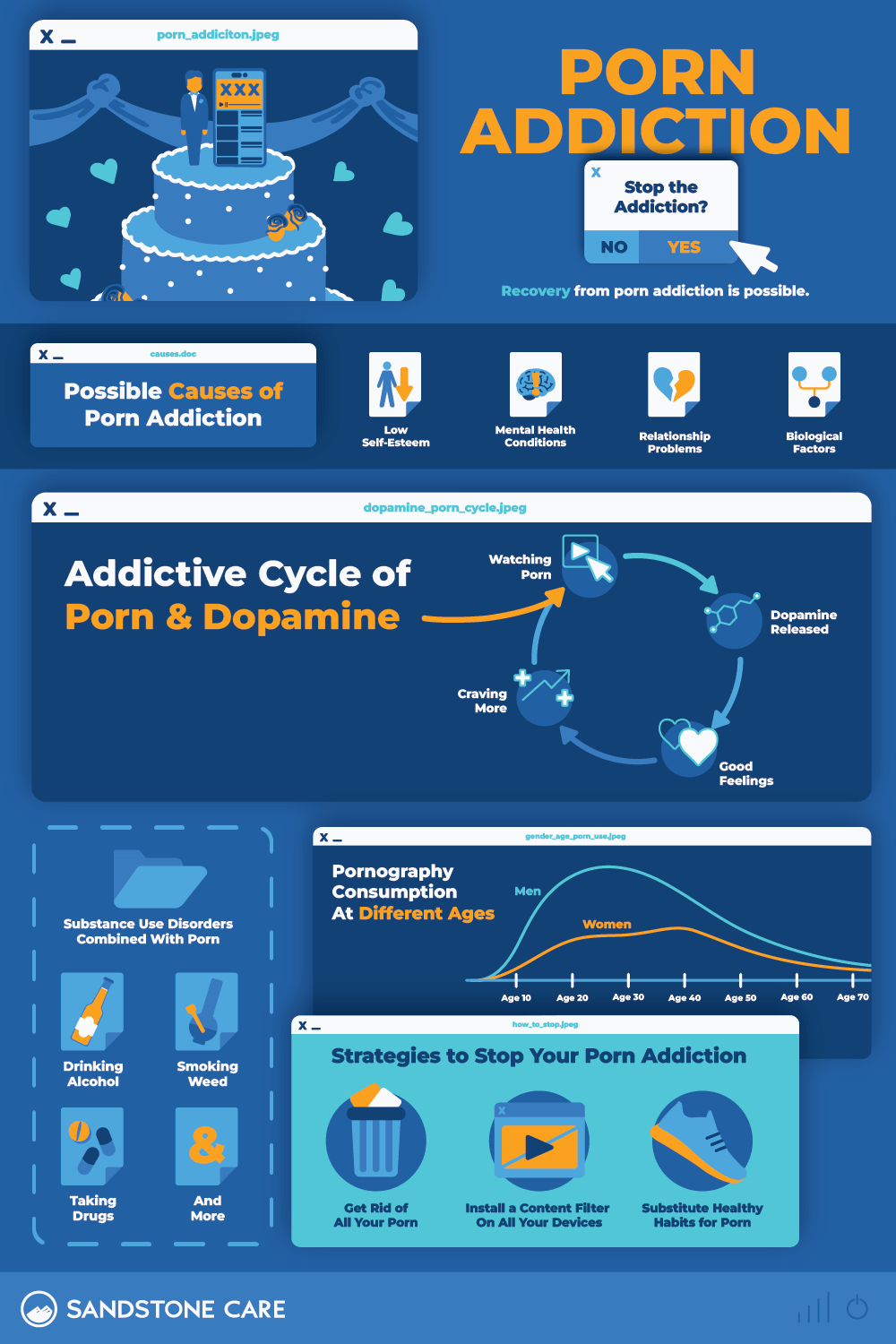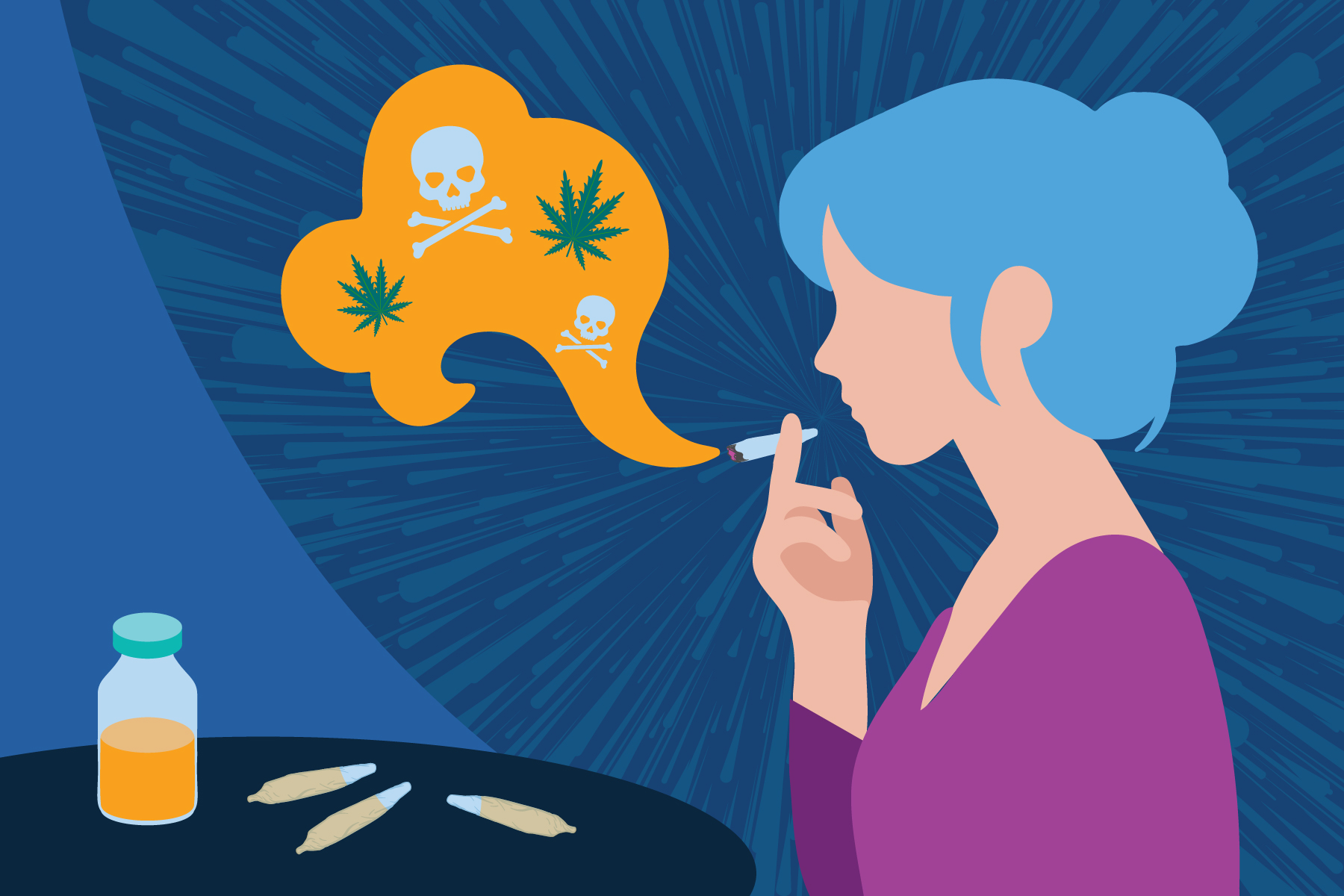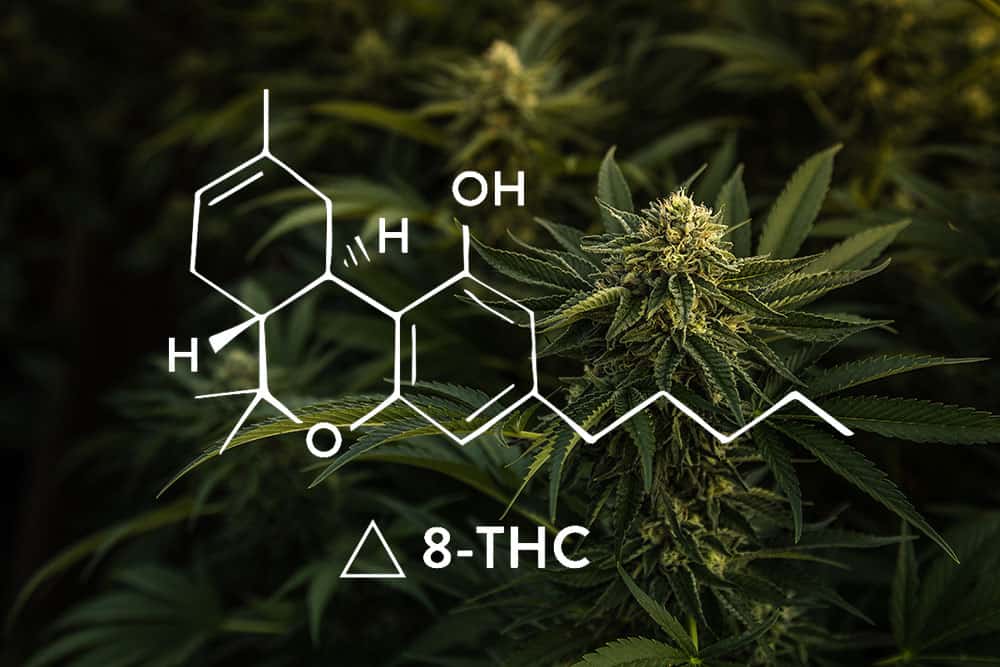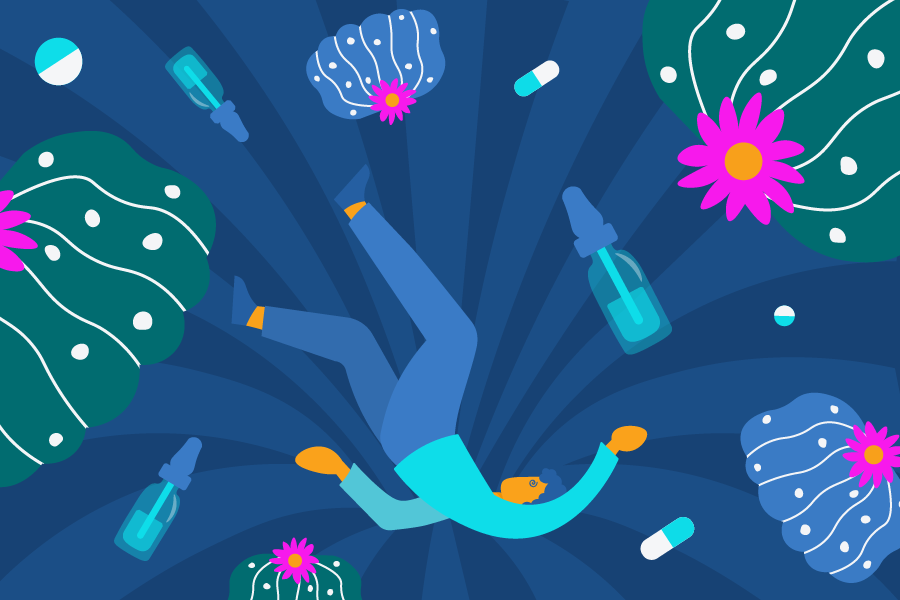Porn Addiction Symptoms
What are the signs of porn addiction?
Some common signs of a porn addiction include:
- Ignoring the tasks you need to do in order to watch pornography
- Feeling ashamed after watching porn, but watching anyway
- Sex life becomes less satisfying
- Problems in your personal relationships
- Starting to view more extreme pornography (such as roofie attacks or drug related porn)
- Spending a significant amount of money on pornography
- Using pornography as a coping mechanism for sadness, anxiety, or other difficult feelings or mental health issues
For loved ones, pornography addiction can show up as changes in communication, trust, and closeness.
You might notice your partner or friend spending more time alone or on their devices, avoiding important conversations or shared activities.
They may become secretive or defensive about their internet use, causing tension and distance in the relationship.
You could also feel hurt or confused, especially if the addiction affects your emotional or physical connection. Their mood might change suddenly when they can’t access porn.
Let’s break down the most common pornography addiction symptoms even further.
1. Watching Porn Too Often
One common sign of porn addiction is watching more frequently or for longer than you planned. You might stay up until the early morning or lose hours when you only meant to watch for a few minutes.
2. Ignoring Daily Tasks
Porn addiction can show up in the way it interferes with daily responsibilities. You may skip homework, put off work projects, or neglect chores because porn feels more urgent.
3. Losing Interest in Real-Life Relationships
Another sign of porn addiction is losing interest in intimacy with a partner. You might avoid sex, feel distracted during intimate moments, or stop enjoying closeness that once felt fulfilling.
4. Hiding and Pulling Away From Others
Pornography use often leads to secrecy and withdrawal. You may delete your browser history, make excuses to be alone, or quickly close your laptop if someone walks in.
5. Feeling Guilty, Ashamed, or Irritable
The emotional impact of porn addiction can be intense. You might feel guilty or embarrassed afterward, promise yourself you’ll quit, or find yourself snapping at others when you can’t watch.
6. Expecting Unrealistic Things From Sex or Partners
Viewing porn can also create unrealistic expectations about sex. You may feel disappointed if your partner doesn’t act like performers on screen or pressure them into things that don’t feel natural.
7. Feeling Physical Pain
One of the biggest physical effects of porn addiction is disrupted sleep. Staying up late to watch can leave you drained the next day, making it harder to focus at school, work, or with friends.
On top of exhaustion, long hours online can also bring headaches, eye strain, or body aches that wear you down even more.
8. Spending Too Much Money on Porn
Financial problems can also be a negative consequence tied to porn addiction.
Subscriptions, videos, or premium sites may start to strain your budget and cause you to stress about bills or have conflicts in your relationships over bills and other necessary expenses.
What Is Porn Addiction?
What is porn addiction?
A porn addiction is when someone struggles to stop using pornography, even when it is actively harming their life and relationships.
Over time, people may need more intense content to feel the same effect, lose interest in real intimacy, and end up feeling isolated or ashamed.
Because porn is unlimited and always available online, the cycle can be very difficult to break.
Why is porn so addictive?
Porn is so addictive because it triggers dopamine, the brain’s “feel-good” chemical, which is tied to one of our strongest survival drives: sex.
Our brains are wired to reward sexual experiences, but pornography can overstimulate the brain, which means you may struggle to feel rewarded by anything other than escalating porn use.
What is gooning?
“Gooning” is a slang term, popular among Gen Z, that describes becoming fixated on porn and losing yourself in it for long periods of time.
Online, it’s often joked about or treated playfully, but the behavior itself can raise red flags about the possibility of being in the early stages of porn addiction.
For adolescents and young adults, the risks of being a “gooner” are especially serious.
The developing brain is vulnerable to addictive behaviors, and when porn repeatedly floods the brain with dopamine during this stage, it can rewire the brain to crave constant stimulation.
Over time, what begins as “just porn” can spiral into addiction, isolation, strained relationships, and long-term challenges that keep them from being able to experience pleasure in healthy ways.
How many people are addicted to porn?
It’s hard to know exactly how many people are addicted to porn, but estimates suggest that about 5-8% of men may struggle with compulsive porn use.
The actual number could be higher, as many people feel too ashamed or embarrassed to admit they have a problem, leading to underreporting.
What are the causes of porn addiction?
Some of the possible causes of porn addiction can include:
- Low self-esteem
- Underlying mental health conditions such as anxiety or depression
- Relationship problems
- Biological influences, such as brain chemistry and dopamine release issues
- Childhood trauma or abuse
- Easy access to porn through the internet and mobile devices
- Social isolation or loneliness
- Coping mechanism for stress or emotional pain
- Religious trauma or growing up in a high-shame culture that creates guilt around sexuality
How much porn is an addiction?
There isn’t a magic number of hours that makes porn an addiction. It becomes an addiction when you cannot stop even when it is damaging your goals and relationships, whatever that amount is.
Using porn often may have little to no effect on one person, but someone else it can completely destroy their ability to focus, connect with others, and take care of themselves.
If you start to notice physical symptoms like not being able to fall asleep without using porn, then that is a strong sign that your brain has become dependent on it to function.
What does a porn addiction look like?
Some common signs of a porn addiction include:
- Ignoring the tasks you need to do in order to watch pornography
- Feeling ashamed after watching porn, but watching anyway
- Sex life becomes less satisfying
- Problems in your relationships
- Starting to view more extreme pornography (such as roofie attack or drug related porn)
- Spending a significant amount of money on pornography
- Using pornography as a coping mechanism for sadness, anxiety, or other difficult feelings or mental health issues
For loved ones, porn addiction can show up as changes in communication, trust, and closeness.
You might notice your partner or friend spending more time alone or on their devices, avoiding important conversations or shared activities.
They may become secretive or defensive about their internet use, causing tension and distance in the relationship.
You could also feel hurt or confused, especially if the addiction affects your emotional or physical connection. Their mood might change suddenly when they can’t access porn.
Effects of Porn Addiction
Why is porn addiction bad?
Porn addiction can cause damaged mental health by turning into an escape from stress, loneliness, or other emotional struggles, without ever resolving them.
Over time, it distorts how you see sex and relationships, fuels unrealistic expectations, and makes real intimacy feel less rewarding.
These patterns can deepen isolation, worsen anxiety or depression, and create lasting conflicts in your life.
What are porn addiction side effects?
Porn addiction can lead to mental health struggles, physical exhaustion, and broken relationships.
It often fuels shame, anxiety, and depression while keeping you stuck in a cycle of escaping emotions instead of working through them.
The brain adapts to constant dopamine spikes, which can make everyday joys and intimacy feel flat or unsatisfying.
Physically, you might notice sore eyes, headaches, body aches, or feeling worn out from staying up too late.
What does porn addiction do to your brain?
Porn addiction is a behavioral addiction that can train your brain to depend on porn and masturbation to cope with stress and other challenges.
Neuroscience shows that sexual desire and sexual activity releases chemicals like dopamine that feel rewarding.
This means that over time your brain starts to rely on porn as an easy, main source of comfort.
This shift can make real intimacy feel less satisfying and harder to enjoy in your daily life.
How to Stop Porn Addiction
How to avoid porn addiction?
You can avoid porn addiction by noticing when it starts to damage your healthy relationships and goals, and then set clear strict limits about how much you view pornographic material.
Look for healthier ways to handle stress or boredom, like exercising, spending time with friends, or talking to someone you trust.
How to quit porn addiction?
Some key ways to quit a porn addiction include:
- Recognize the problem
Write down exactly how porn consumption is impacting your life (missed sleep, relationship tension, trouble focusing). - Track your triggers
Keep a journal of when the urge hits so you can prepare for when you’re most vulnerable. - Limit access
Install website blockers, delete saved videos, or move devices out of your bedroom at night. - Build healthier routines
Replace porn with something specific: go for a run after work, try meditation and mindfulness, or keep a book by your bed to read at night instead of scrolling. - Work with a therapist or support group
Therapy can help you understand the emotions driving your porn use, while a support group can help you get new ideas from others in recovery.
How do you help someone else with a porn addiction?
You can help someone with a porn addiction by starting honest conversations, offering emotional support, setting clear boundaries, and encouraging professional help through therapy or support groups.
If their behavior is damaging your relationship, be upfront about what you need to feel safe and respected.
Porn Addiction Treatment
Is there porn addiction therapy?
Yes, therapy for porn addiction often focuses on healing root causes like stress, trauma, depression, and anxiety, while also teaching healthier coping skills.
One of the most effective approaches is cognitive behavioral therapy (CBT), which helps people recognize harmful thought patterns, identify triggers, and replace them with more balanced behaviors.
Because porn addiction is closely linked to sex addiction and other mental health disorders, therapy may also explore how stress, loneliness, or relationship struggles are affecting the addiction.
Is there medication for porn addiction?
There are currently no medications designed specifically for porn addiction, but there are treatment options that can help manage the underlying issues driving it.
Since porn addiction is a behavioral addiction, mental health professionals focus mostly on psychotherapy, but doctors may prescribe medication to address related concerns like depression, anxiety, or ADHD.
They also may include medication to treat substance use disorders like drug addiction that are happening alongside the use of pornography.
By treating these root causes, cravings for porn often become easier to manage.
How long does it take to recover from porn addiction?
Recovery from porn addiction varies, but most people move through similar stages.
The timeline depends on factors like the amount of time you’ve been using, how often, and whether issues such as anxiety, depression, or trauma are being addressed.
Porn addiction recovery timeline:
- First Few Weeks: Strong cravings and relapse symptoms, mood swings, and sleep problems as the brain adjusts.
- 1–3 Months: Negative effects of cravings, focus and self-control improve, and interest in intimacy may return.
- 3–6 Months: Healthier coping skills take hold, triggers feel more manageable, and confidence grows.
- 6–12 Months: Clearer mental health, stronger relationships, and more balanced routines.
- 1 Year+: The focus is on keeping healthy habits, preventing relapse, and living a more balanced life.
Can a porn addiction ever go away?
Yes, porn addiction can go away, especially when you get the right kind of mental health support.
Working with a therapist can help you dig into the root causes of the problematic pornography use whether that’s stress, anxiety, depression, or past trauma.
Many people find that outpatient mental health treatment can help them to find the source of their stress, rather than just trying to treat a constant flood of symptoms.
A therapist can also give you healthier ways to cope while rebalancing your brain’s reward system.
Treatments like cognitive behavioral therapy (CBT) and support groups make it easier to break the cycle and feel more in control of your life.

